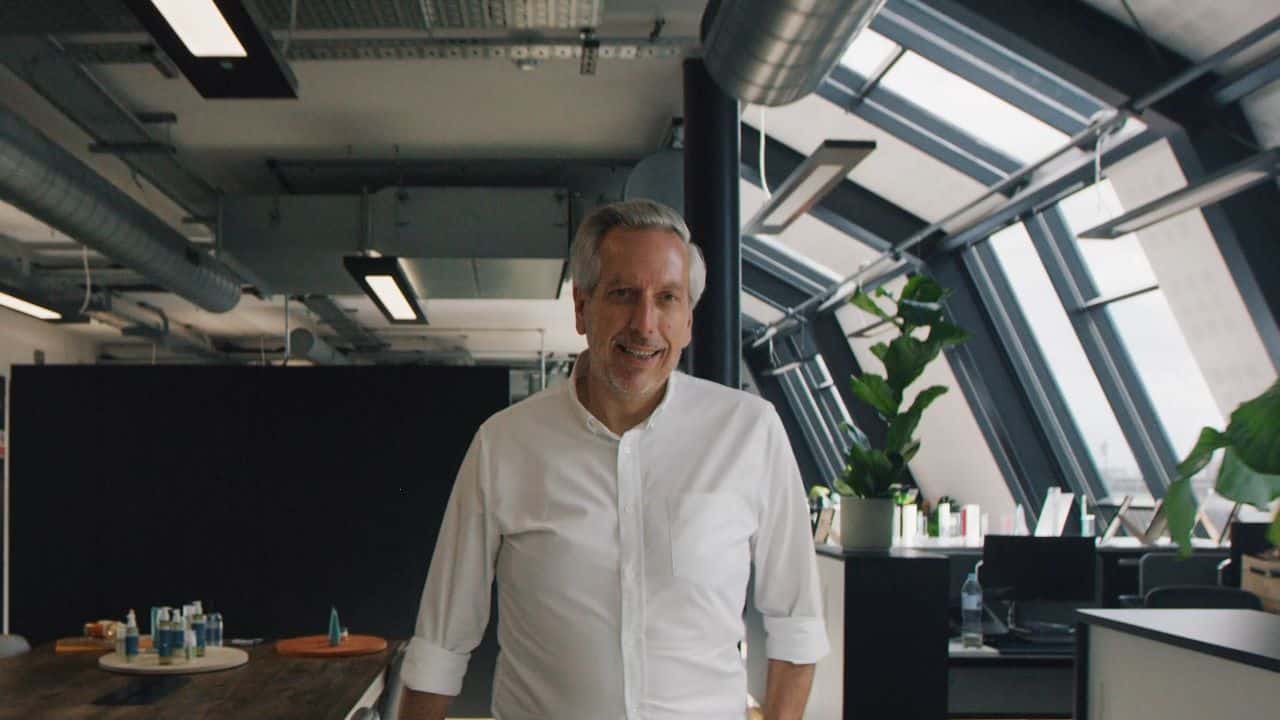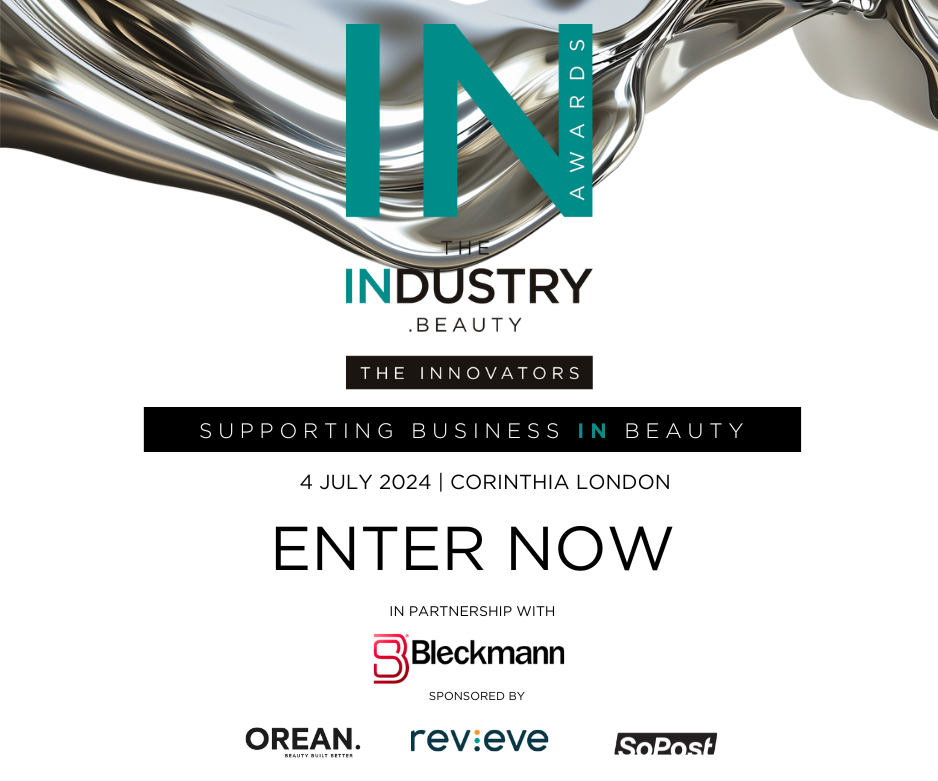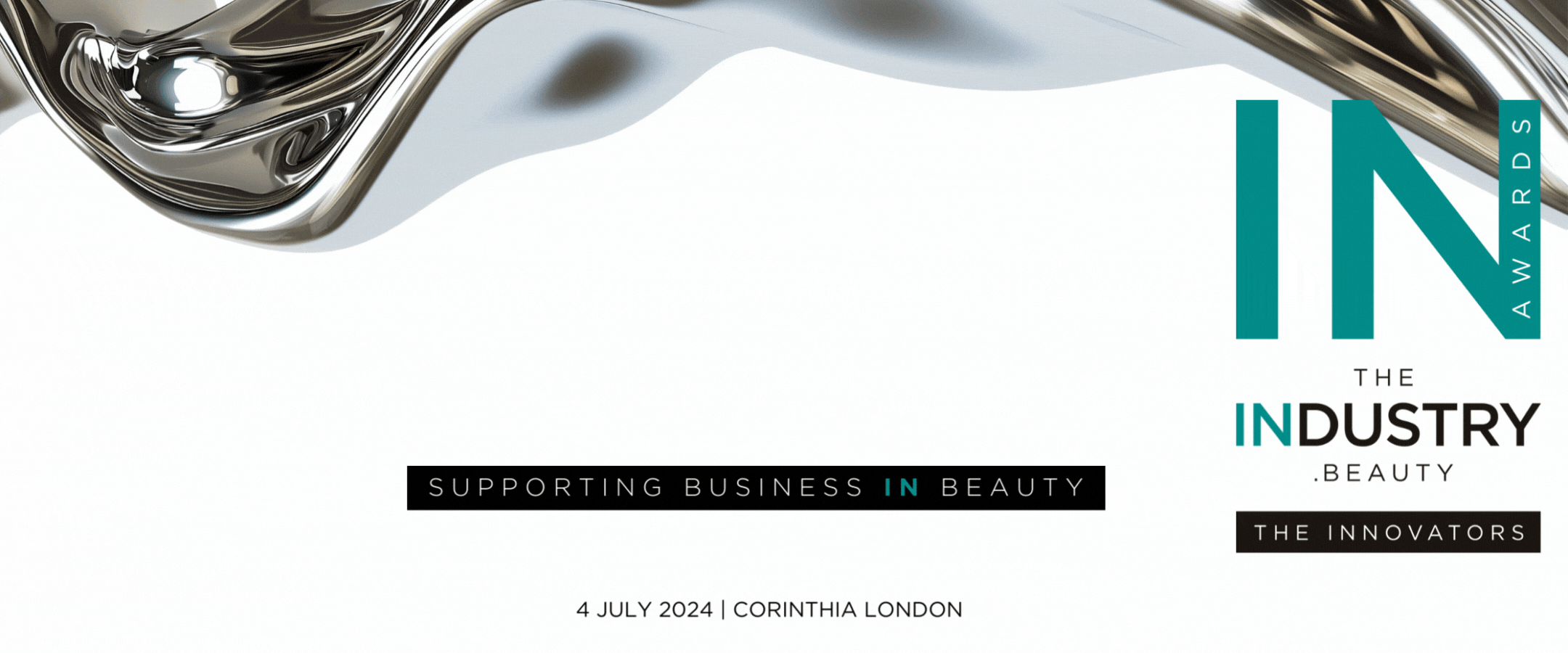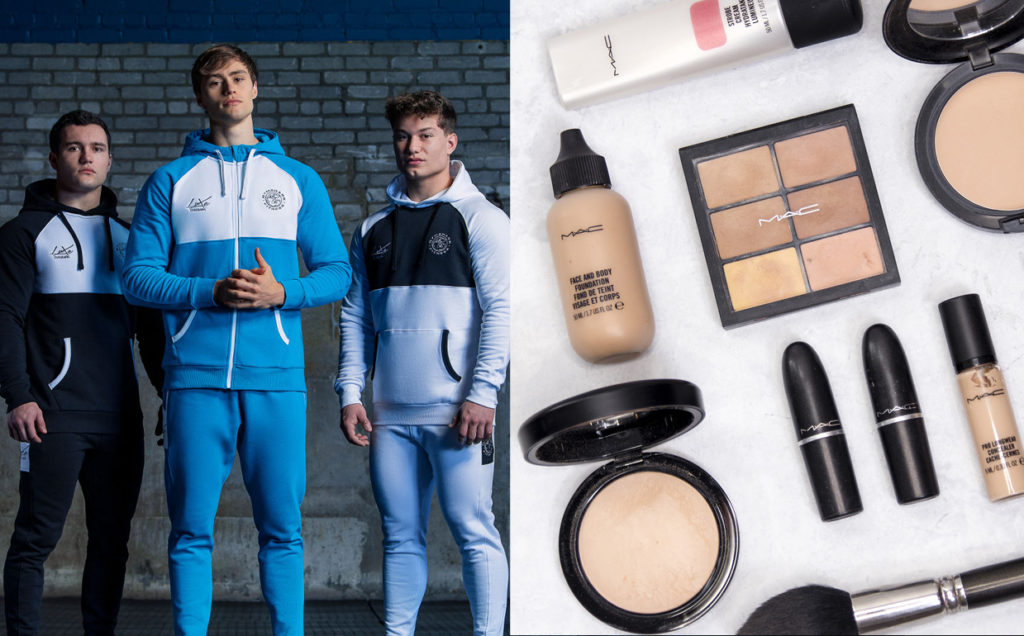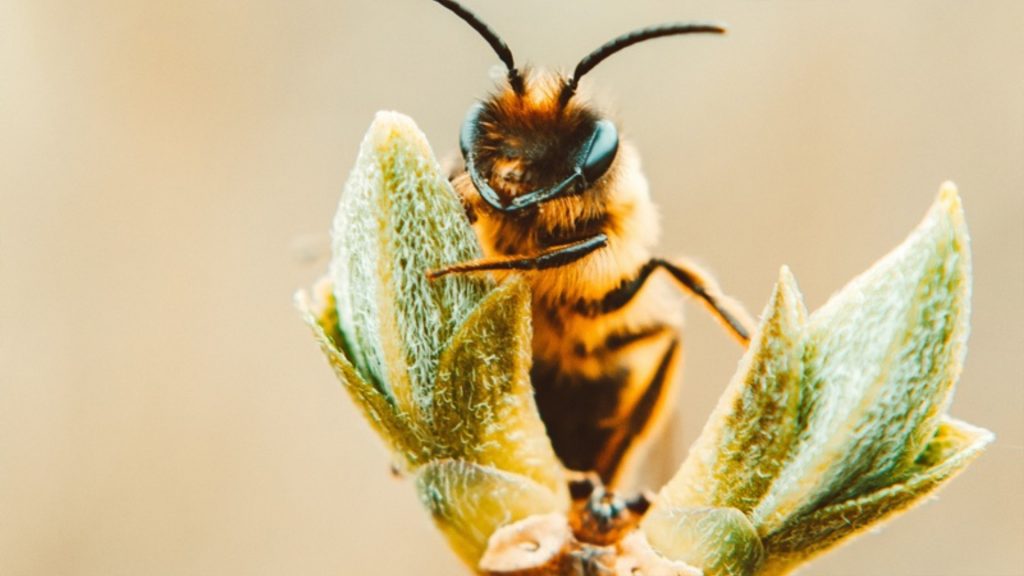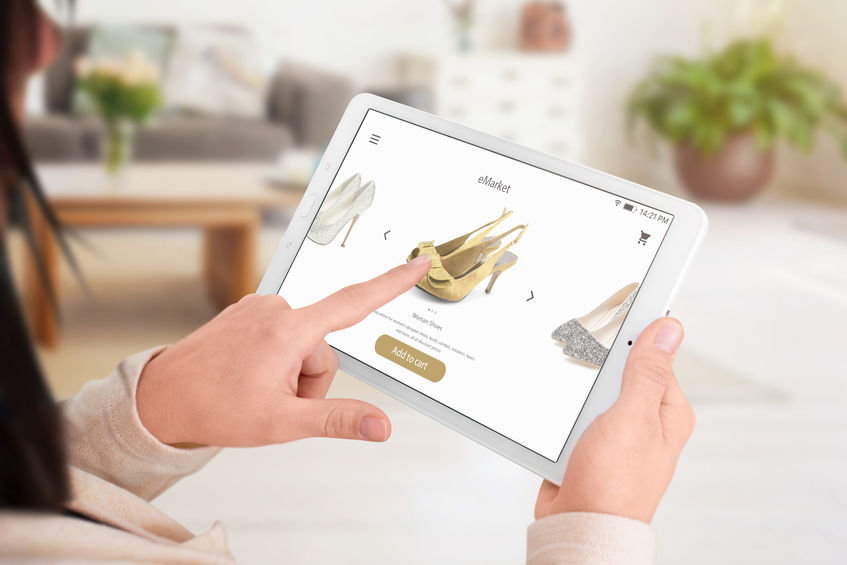The Interview: Arnaud Meysselle, CEO of REN Clean Skincare
In 2018 REN pledged to become Zero Waste by the end of 2021 - producing only recycled, recyclable or reusable packaging in a bid to create a brand that was not just Clean to Skin, but Clean to Planet.
Just over two years on, we caught up with REN CEO Arnaud Meysselle to find out where the brand was on its Zero Waste Journey and the highs, lows and learnings that he has experienced along the way.
With 10 months left to go, where are you currently with the zero-waste pledge?
“We promised that we would be zero-waste by the end of 2021 and the good news is that we are on track which is incredible despite everything that has happened in the last 12 months!
It was, and continues to be an ambitious target but every single innovation that we have launched since then has been zero waste – that’s a 100% track record.
It’s all about making sure that we prevent our products from ending up in landfill, that’s the ultimate mission.
However, launching new zero-waste innovations is one thing; the real challenge comes when you start to look at transitioning your existing product portfolio to zero-waste solutions – that’s definitely the trickiest part.
Today we are at 60% and the needle is moving every month. By the end of December 2021 we will be 100%. Communicating each step of our journey will continue to be key, because these days transparency is everything.
It’s a massive undertaking but we are showing great progress and it’s exciting.
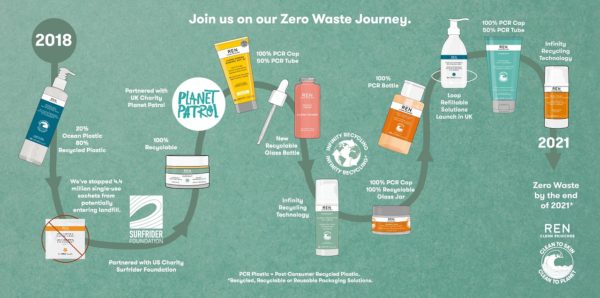
Talk us through some of the key milestones over the past three years…
In terms of packaging innovations there have been quite a few, best illustrated by our Zero-Waste Roadmap.
Right at the start of the pledge we launched our first bodywash in a bottle made from 20% ocean plastic and 80% recycled plastic and very soon after that we decided to stop producing single-use sample sachets which was a very big deal.
In the beauty and personal care industry 112 billion sample sachets are produced every year and 100% of them end up in landfill. They are not recyclable and on top of that, they are very light, so they blow away. We said no to that and so far we have saved four and a half million sachet samples as we transition to different solutions. We are not there yet with sample sachets but we have some really exciting news on that to come shortly.
There have been lots of others along the way but another key milestone was of course in 2020 when we pioneered the zero-waste recycling technology Infinity Recycling –which was first launched with our Global Protection Day Cream and now for our new Radiance Brightening Dark Circle Eye Cream.
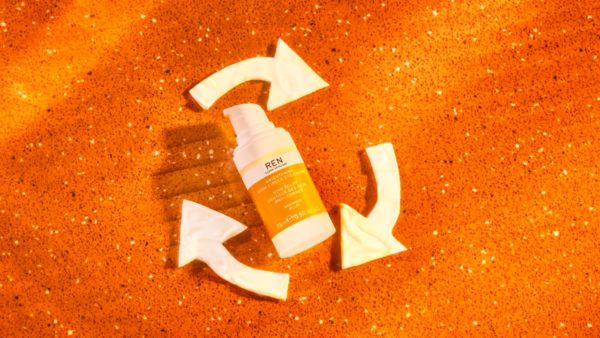
We have also started working closely with activists – organisations such as Planet Patrol in the UK and Surfrider Foundation in the US.
These people are working day in day out on key projects to clean up the planet’s oceans and waterways, educate people and lobby the authorities to make change.
We are lucky that here in the UK we are living in a country that is not, at least visually, impacted by the massive problem of plastic pollution but it’s so important for people to change their behaviour. We have also stepped up our lobbying efforts in this regard, but the cities, the councils, the waste management authorities and so on need to help us more, so that together we can really push the needle.
The waste industry is still quite outdated and slow to adapt, it needs to catch up with the times and evolve to be able to recycle smaller products for example.
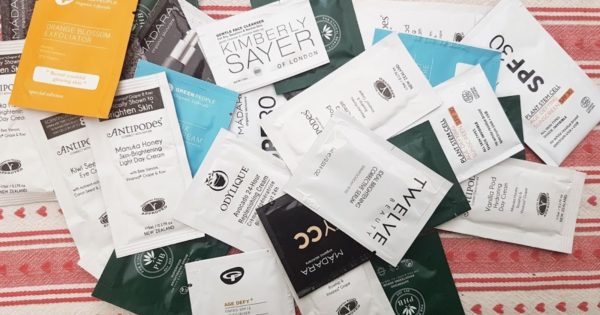
What’s the biggest hurdle you’ve faced so far?
There’s been a few! The first was changing mindsets and actually that was really internal. There were lots of people that just didn’t believe that you could do luxury beauty and be sustainable at the same time.
Remember, for consumers of luxury beauty, packaging has always signified luxury. What we were saying with the pledge though was that packaging meant waste, so changing mindsets was a key challenge.
At the same time though, we also needed to ensure that the new packaging still looked good. We needed to retain the attractivity of the product but without compromising on sustainability. It was all about showing that sustainability can and is beautiful and positioning sustainability as the new luxury.
People were also very sceptical about how consumers would react to the new colour of some of the recycled packaging lots would say, “oh but it’s not transparent it’s grey,” and we had to say even louder, “yes but grey is the new green!” and you know what, when it came to launch, consumers loved it!
Another hurdle to navigate was that when you’re travelling up the road to zero waste, you don’t want to make waste along the way.
When you create a new zero waste product, the last thing you want to do is throw away the old packaging variant. I know it sounds obvious, but believe me in this industry, moving to new packaging often means creating a lot of waste in the process!
What we have tried really hard to do is always promote or give away old product to charities. An acute phobia of waste is what’s needed really, and at REN we strive to eliminate waste at literally every step.
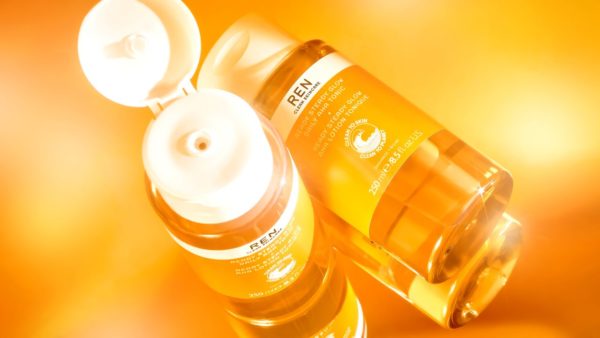
Another big hurdle was accessing the right suppliers to help us achieve our zero-waste mission. Being part of a big company like Unilever has certainly been of benefit here as it’s given us access to some of the best packaging engineers in the world, who have helped us to find the new solutions.
Tell us about the key suppliers who have helped you on your way…
We have a number of key partners, with whom we worked tirelessly in our quest to pioneer new technologies and solutions.
There’s a company called SABIC which invented the concept of infinity recycling and we’ve been working with them, in collaboration with a famous packaging manufacturer called APTAR which has helped us to develop the Infinity Recycling technology which is getting pretty close to the sustainability silver bullet.
In a nutshell, the technology takes plastic which would usually go to landfill, explodes it at a molecular level, taking away all the dirt and bits you don’t want, before recycling it into a new plastic which has exactly the same characteristics as virgin plastic. Basically, it’s plastic re-born.
Incredibly, this recycled plastic can be transparent, can be white, can be any colour that you want and also it can be recycled as many times as you want.
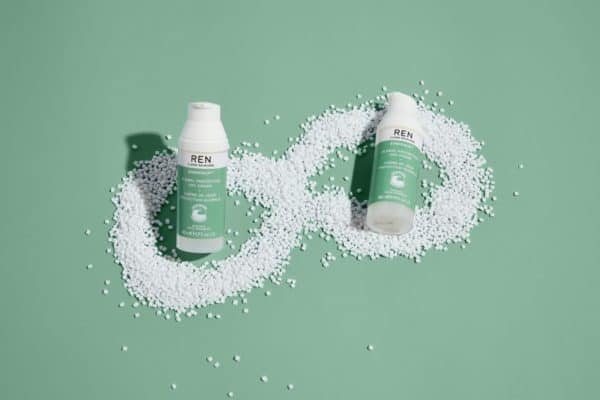
This is a real breakthrough, because the problem with normal recycled plastic is that it cannot usually be recycled more than 10 times.
We also have another key supplier called VIVA with whom we are working on all our post-consumer recycled (PCR) tubes and last but certainly not least is TerraCycle who we have been partnered with since day one on sourcing ocean plastic and also for the Loop Zero waste e-commerce platform.
From the very start we have been incredibly transparent about which suppliers we are working with, what we are doing and how we are doing it and that’s because we don’t want any secrets; we want other brands to get involved with these people on similar initiatives. We can’t protect the planet alone, we need everybody to join us.
How transparent have you been with consumers about the process?
Transparency with consumers has been key. We have never pretended to be perfect or to have all the solutions at the ready, we have a roadmap and we have been very clear about the route we are taking to achieve our goal and we’re not there yet.
It’s so important to be honest about that. For example, in late January we put out a post on social media announcing the fact that our Ready Steady Glow Tonic was now 100% recyclable due to a change we had just made with the pump.
We had re-launched the product in 2020 following a packaging development which meant that the entire bottle was made out of recycled plastic and barring the pump, the product was 80% recyclable.
The pump was the last piece in the puzzle and finally, earlier this year, we solved that problem and now thanks to a new pro cap, the whole product is 100% recyclable.
We thought it was really important to communicate that change and the process of evolution to consumers – and we really do find that consumers of all ages appreciate our level of transparency.
We could probably have said that we were already zero-waste with that product (and other brands might well have done so) but the truth is that we weren’t; we were 80% there. In my opinion to really get people on board with the concept of zero-waste, you need to take them on the journey with you, they need to know about the process as a whole; the set-backs and the steps forward.
For a lot of other big brands out there, being green and clamping down on waste forms a part of their corporate social responsibility strategies (CSR) but for us, this is not CSR, every single employee of REN is an advocate of the planet and everyone, at every level, is waking up in the morning with thoughts about how to grow the brand and deliver great products but also how to protect the planet. That’s our purpose as a brand. That’s our DNA.
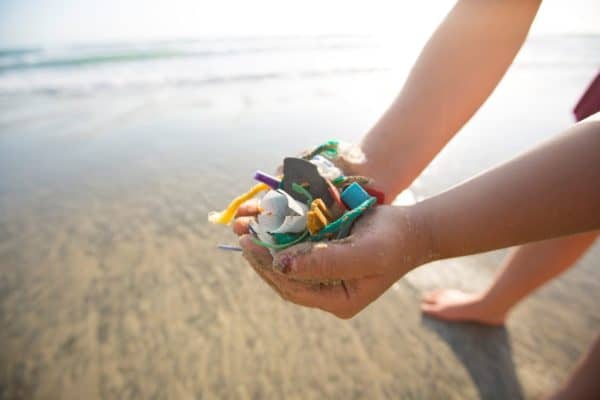
What key learnings have you made?
I’ll come back to transparency again because in this industry, the importance of transparency cannot be overstated – it’s the ultimate weapon against greenwashing.
Unfortunately there are a lot of brands out there who are not transparent. There’s a lot of shouting about being “the best” at this or “number one,” at that and that approach just simply doesn’t work when you are talking about your environmental plan.
It’s not about being number one, no-body is the best when it comes to the environment, but what is important is transparency and working together.
As far as protecting the planet is concerned, collaboration needs to be the new competition. Sometimes I come across other company’s press releases about their zero waste innovations and I say, “wow, they’ve done it, they’ve found the silver bullet but then I check with my packaging engineers and we find out that it’s not quite true. There’s often a lot of small print attached to these innovations and when you really delve into that you find that certain pieces of the product are actually not recyclable, so they are not fully zero waste! If it’s an innovation about reducing packaging waste then great, but don’t say it’s zero waste if it isn’t!

Another key learning for me is that working with recycled materials is more important than recyclability. Using recycled materials means that you are not using virgin plastic. The problem with creating a product that is simply recyclable is that recyclable is a theoretical word. Firstly, it relies on consumers actually recycling the products and secondly, that the products are correctly recycled after consumers have disposed of them.
Consumers can’t control what happens to their recycling waste after their bins are taken away and nor can brand owners. On average in this country only 50% of recyclable waste is actually recycled and that’s a maximum, sometimes it’s much less and that’s shocking.
So for us, our big focus is using recycled materials to produce our products in the first place and also as far as we can, using materials which are also widely recyclable everywhere in the world.
What’s been the biggest surprise?
The enthusiasm of consumers never fails to take my breath away and it’s growing exponentially. The last three years alone have really seen consumers wake up to the problem of plastic pollution and much of that is due to documentaries from likes of Sir David Attenborough.
People of all generations have now become keenly aware of the issue, particularly the younger generations: the young Millennials and the Gen Zs. It’s front and centre for these guys; they simply cannot accept that your product has a negative impact on the environment and that’s putting a lot of companies which have positioned themselves as ‘natural skincare brands’ in a difficult position. Consumers are asking and requesting that brands are both clean inside and out.
People do however, understand that sustainable or zero-waste packaging is a challenge, it requires money, time and a lot of resources and they can forgive that, if they can see that a brand is trying to make progress. They want to see a plan, and they want to see that brands are taking action. Actions are more important than pretty posts on Instagram.

Positivity is also really important. We’re not out to make people feel guilty for not being sustainable, or trying hard enough. The fact is that it’s very easy not to be sustainable, it does require some effort to lead a more sustainable life, so showing people how to do that in a fun, engaging way, such as via Tik Tok challenges for example goes a really long way. Sustainability can be a laugh, it can be cute, it can be sexy.
So what’s next?
We will soon be making a really exciting announcement about a key development we have made with our sample sachets. They are currently made of recycled material but because they are so small they are not currently recyclable everywhere.
However, we have found a solution to make all our samples recyclable everywhere in the world. We are finalising contracts at the moment so there’s more news on that to come but it’s going to be a really big thing for us.
The next step is thinking beyond packaging, with our suppliers, our overall carbon footprint and so on and so on and we will do a refreshed pledge in the last quarter of the year. We won’t just stop in our mission to protect the planet at the end of 2021!
What top tips have you got for other brands starting out on their sustainability journeys?
You need to be sustainable by design, it’s not an afterthought! The solutions exist now and for companies creating new brands, there really is no excuse not to launch sustainable products anymore.
Being responsible is also so important. As a brand you need to think so carefully about your whole environmental footprint, the impact of your giveaways, your gift sets, the wrapping and so on, make sure also, that in the current boom towards online shopping, the boxes that you send products out in are made of recycled carton. At every level you need to be thinking about sustainability and what proportion of the goods that you produce end up in landfill and how you can reduce that figure.
Covid19 has been really bad news for the environment because it has birthed the return of lots of single use plastic for safety so that’s another challenge that brands now need to overcome. Brands now have to ask themselves the new question, how can we keep products as safe as possible, whilst also being sustainable? It’s not related to beauty, but just look at the problems that face-coverings are now producing, they are not recyclable and you see them discarded everywhere, it’s terrible.
How are consumers responding to the brand and the pledge?
We are lucky enough as a brand to have grown by double digits last year despite all the challenges of the pandemic and besides our skincare philosophy (we are the sensitive skin experts after-all) I have no doubt that our focus on zero waste played a key role in that.
Our products are all about efficacy without the irritation and that’s where we originally developed the concept of clean and in addition to that consumers can also clearly see that we are doing all we can to have the smallest impact on the environment and that focus resonates so strongly with them.
What impact has Coronavirus had on the pledge?
Obviously, when Coronavirus first hit, for many people sustainability was not front of mind, people were overcome with terrible worries about their safety and that of others.
There were a couple of things we wanted to do last year that we had to postpone but apart from that it hasn’t really affected the progress of our pledge.
What it has done is force us to refocus lots of our activity to become online first, so with our retail partners online we had to focus on the impact of our deliveries and boxes and so on.
It has also created a challenge in terms of the sourcing of carton. The boom in online shopping has created a problem with sourcing carton globally. The lead time for cartons is now quite long and as we grew exponentially last year it become more of a challenge to get hold of the recycled carton that we needed. We are getting there though.

What about Brexit?
Brexit is a mess. In practice it’s a nightmare. We do a lot of business with Germany, France and the Republic of Ireland and most of our orders were delayed by three weeks because of problems with carriers and issues at the border.
It’s been very complicated but we have been working really hard and certainly from a direct to consumer (DTC) perspective we will soon be able to propose a new type of hassle-free delivery to our customers beyond the UK.
Going back to the subject of waste, Brexit has also been a massive waste of time, money and productivity and I just hope the situation improves. Yes, there was an agreement with Europe so there are no extra tariffs or duties but still, with the new VAT rules, it’s all massively complicated and what upsets me the most is that it’s getting in the way of good business.
As a country we’ll get there but we didn’t really need that at this moment in time.
However, at REN, we have such a clear goal, a NorthStar; and having a purpose that strong, that means so much to people, really does help you to overcome any challenges that stand in your way and we will certainly get there.

